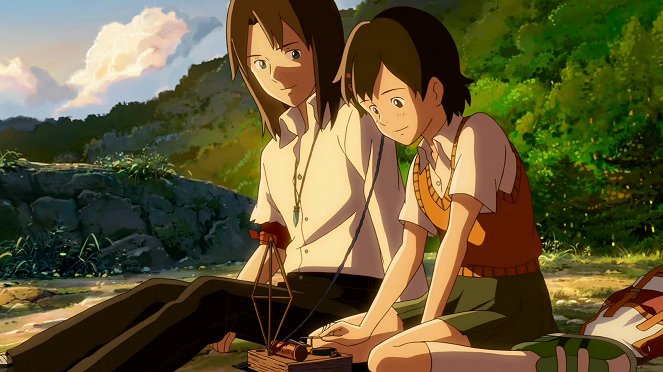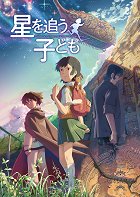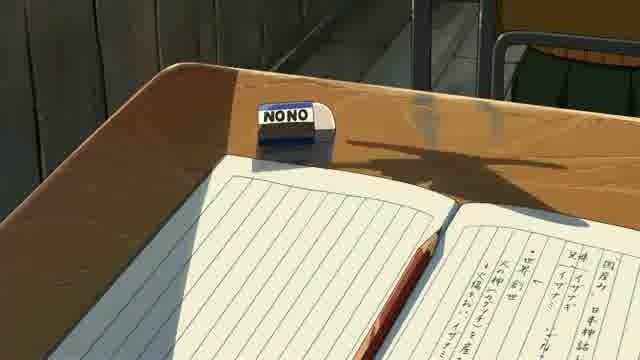Rendező:
Makoto ShinkaiForgatókönyvíró:
Makoto ShinkaiOperatőr:
Makoto ShinkaiZeneszerző:
Atsushi ShirakawaSzereplők:
Fumiko Orikasa, Kenji Hamada, Hisako Kanemoto, Junko Takeuchi, Kanae Itō, Rina Hidaka, Sumi Shimamoto, Kazuhiko Inoue, Takeshi Maeda, Miyu Irino (több)Tartalmak(1)
When she hears a strange song from a crystal radio, Asuna tunes into more than just a magical stream of music. Soon, she is transported to a mysterious world where mythical beasts roam and brave warriors fight for their lives. Agartha is a land of breathtaking beauty and unimaginable danger - a place where, it is believed, even the dead can be brought back to life. But at what cost? (Madman Entertainment)
(több)Videók (1)
Recenziók (3)
None of Makoto Shinkai's trademarks are lacking (rain, a train, longing) and yet this trip is different from every else he has created, before or after. From the adventure of a band of misfits, a fantastic and unconventional fantasy quickly emerges, and although other reviewers criticize how it rips off none other than Hayao Miyazaki, I welcome this deviation. The genre action is surprisingly exciting when all is said and done, and I had no idea what would happen in the next five minutes, less so at the very end. Long hours contemplating the conflicting twists and character development are a sure thing.
()
Shinkai’s film lays out for viewers an admirably complex fantasy world with intricate mythology. Unfortunately, however, all of that is counterproductive here. The endless stating of the names of various parts and elements of that world, the permanent establishment of the fantasy realm’s relationship to reality and the construction of a rigid mythology paradoxically conceal the true essence of the film, which presents, or rather should present, a narrative about overcoming the excruciating pain of losing a loved one. The fantastical, which should fulfil a symbolic role for the characters’ inner feelings, ceases to serve its purpose here with its obstinate concreteness and overwrought nature, which leads to the necessity of expressing emotions expressed in straightforward monologues. The film is equally unbalanced in the constituent motifs, or rather attractions, which it uses to please its target audience of teenagers. Gratuitous gore is combined with gaudy cuteness and picturesqueness, and the central motif of the difficult and painful search for one’s own path through life after a devastating loss is simultaneously expanded into complex ideas and portrayed with simplicity and naïveté. As an antithesis to Shinkai’s film, Shinya Tsukamoto’s brilliant Vital and the anime A Letter to Momo also expressively deal with coping with the loss of a loved one, but in both of those films the subject and metaphor are perfectly in balance.
()
Even though the Japanese title doesn't say much, I still find it nicer than the internationally released "Children Who Chase Lost Voices from Deep Below," which translates to "children chasing lost voices from the depths." This English title is not an accurate translation; it could be written in Czech as "children chasing stars." This title itself is magical and refers to what awaits us. Another unique spectacle from Japanese production. If you think that American animated films are strong in terms of the story, start watching Japanese ones. Although they have a very classic drawing style, the story usually amazes you. It is incredibly epic, even though it focuses only on a few characters. It remains strongly emotional, but you never feel like someone is blackmailing you. More: http://www.filmovy-denik.cz/2013/03/hoshi-o-ou-kodomo-2011-70.html
()
Galéria (68)
Photo © Media Factory



Hirdetés